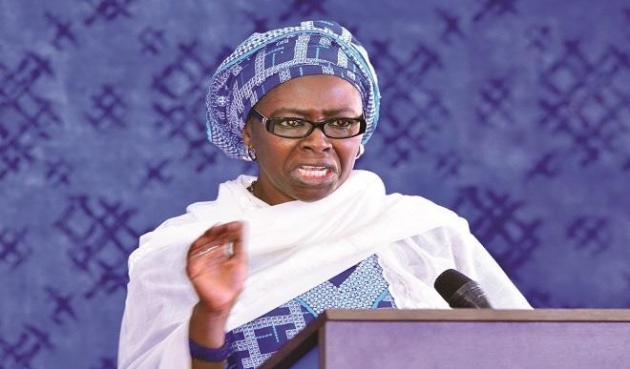Family planning isn’t about contraception — Mandara

The conference got off with a raft of meetings with religious leaders, youth groups and women’s organisations, in efforts to get all on the same page with family planning. What singular lessons stand out?
For me, what stands out is the fact that a lot of the people who came are people who are important stakeholders. Important stakeholders for me are not necessarily the service providers, but the converted people who advocate family planning. It is actually the people whose lives family planning affects, women. There is a good population of women, there is good participation of young people, and there is good participation of religious leaders and traditional leaders.
Now, the framing of family planning is not about contraception; family planning is about life. It is about being able to plan your life in such a way that when you have children you will be a responsible parent. When you have life, you will live your life to the fullest, to the best potentials that you have. It is like when you plan your family, you are able to pay the school fees. It is not just contraception; it is planning to be who you are. It is planning to be a whole human being.
How far do you see this new framing going for family planning?
I don’t think that is a new framing. I think it is better understanding of what family planning is. We’ve come a long way to understand that family planning is a tool to an end. On its own, it is not an end. So, I think we are on the right track. The fact that we have religious leaders, we have traditional leaders. We have National Council of Women’s Society, we have Federation of Muslim Women Associations (among others). We have all these people who have relationship with real humans, I mean ordinary people who are most affected. I think we are on the right track. And, it is a very important tool for improving maternal mortality.
Considering the stance in government’s funding towards family planning, do you think the government is ready to step up on what’s required?
I think the issue of access is really important in the sense that when the demand, like anything else rises, people themselves will push government. We have had the head of USAID challenging government to stand up to its responsibility and ensure that family planning commodities and other important life-saving commodities for maternal health are available. Like in this country, we have a [package], it is not just family planning, it is life-saving commodities, which include things like misopostrol for prevention of post-partum haemorrhage and essential medicines that make pregnant women live healthy and productive lives.
So, while we advocate that government take that responsibility to step it up, but the most important responsibility of ensuring government keep to its commitment lies with the media. I think this is where, at the end of this conference, if journalists report that we’ve had nice papers, so many important people coming, people attending the programme, it is a done deal. But, what happens after that? What happens now reporting it? It is 10 percent of the job. The 90 percent of the job is what happens after that.
One of the key things that will happen after that, yesterday, we heard the minister say government would increase the reproductive health commodity commitment from $3 million to $4 million. You journalists need to make sure that that is really in 2017 budget, that is really released, it is used. Monitor it that it is not stolen. That is the biggest job you will do for us.
Read more at http://www.dailytrust.com.ng/news/health/family-planning-isn-t-about-con...












